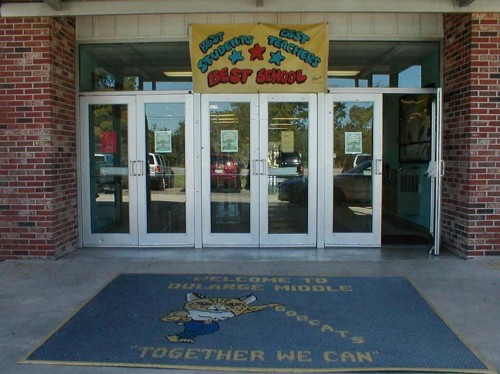
Dularge Middle sets bar for educating the poor
February 22, 2011Thursday, Feb. 24
February 24, 2011Low-income individuals and families that have depended upon or might need legal assistance when dealing with civil matters in Louisiana could be left without representation as parishes cut back on their budgets in 2011.
Capital Area Legal Services Corp., which has been funded by contributions from 12 parishes, including Terrebonne and Lafourche, is faced with a loss of financial support that could range from $24,530 to $47,330 this year. In turn, the legal aid agency could soon be faced with cutting some of its services.
In their 2010 budgets, parishes that have been served by the CALSC office in Houma offered a total $138,430 to ultimately assist low-income residents. Of those reporting their 2011 budget allotments, East Baton Rouge and Iberia parishes each maintained the same budget amounts from the previous year at $44,000 and $10,000, respectively.
Terrebonne Parish reduced its budgetary amount allotted for the CALSC from $24,000 in 2010 to $22,800 in the 2011 budget.
Parishes that completely cut out funding for the legal aid service in 2011 include Lafourche, which provided $5,800 in 2010 and offered nothing in 2011, and Assumption from $4,200 in 2010 to zero in 2011. Both Pointe Coupee and West Baton Rouge parishes cut funding for 2011 after each had allocated $5,800 in 2010. West Feliciana Parish went from allocating $6,030 in 2010 to nothing in 2011.
St. John the Baptist Parish officials increased their budgetary allocation from $10,000 in 2010 to $14,300 in 2011.
Administrators with Ascension and St. James parishes did not return telephone calls by press time to offer what they had budgeted for this service in 2011. During 2010, Ascension had provided $17,000 and St. James offered $5,800.
“[CALSC attorneys] come down here every week. So we provide office space so they can see some of their clients,” Iberville Parish Finance Director Randall Dunn said.
“But we had to do some in the 2011 budget and that was one,” said Assumption Parish Secretary/Treasurer Kim Torres.
CALSC managing attorney Salyria Williams said that money from Terrebonne helps when it comes to paying the rent and providing travel to outlying areas where agency personnel intervene in some situations and help individuals with completing applications.
“[The] legal services budget has been cut, and cut, and cut. It started with the Consolidated Omnibus Budget Reconciliation Act [of 1986] and every year, except last year, they cut our funding, which means we have to cut back our services,” she said.
The Legal Services Act of 1974 paved the way for organizations such as CALS to provide free legal services for civil matters to individuals who are eligible depending on gross income in relation to family size. Qualified applicants are determined based on 125 percent of the poverty level. Williams offered the example of a family of four with a monthly income of $2,296.92 being qualified for services.
Williams said the Houma office has processed an average of 3,000 cases a year during the past few years.
There are four legal service programs in Louisiana. “We have our main office in Baton Rouge. We have this office in Houma. We have an office in Gonzales and one in Donaldsonville,” Williams said. “We also have a grant with the [Louisiana] Bar Foundation to handle child care cases.”
CALSC was founded in 1958 under the name of the Legal Aid Society of Baton Rouge. A change to the agency’s current name came in 1978.
The most common kinds of cases they handle include family matters, consumer issues, public benefits, bankruptcy and housing.
CALSC has promoted itself as being an agency that helps enhance economic stability by preventing unemployment or help head off an increase in unemployment income. It offers representation in child custody cases, adoptions, divorces, domestic violence, and the civil rights of children and families. CALSC helps maintain clients’ access to quality education, and works with student rights and on discipline matters. Elderly protective services are also provided by the CALSC.
CALSC makes use of volunteer attorneys to work on cases and participate in community education programs.
Williams said she was not certain how the reduced funding from parishes her agency covers will impact services or jobs.







